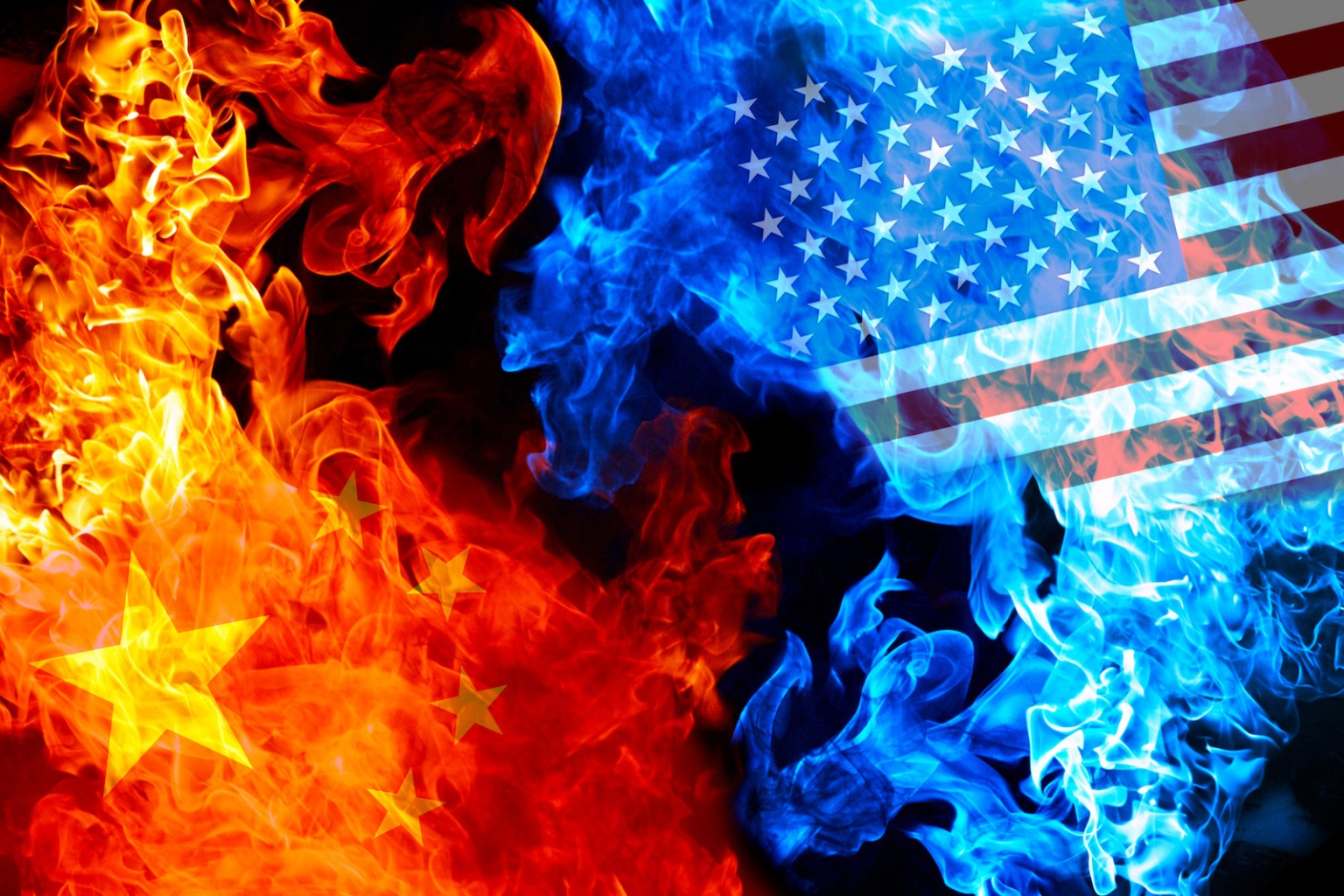Covid-19, which originated in China, added fuel to the US-China “big power competition” narrative with increasing numbers of people in the US government and media, pundits and the public, blaming the Asian country for America’s economic and other ills.
Secretary of State Mike Pompeo named severe acute respiratory syndrome coronavirus 2 (SARS-CoV-2) the “Wuhan virus,” and national security adviser Robert O’Brien lambasted the Chinese government’s “lack of transparency” or coverup the cause of the spread of Covid-19, the disease the coronavirus causes. Even President Donald Trump retweeted it as the “Chinese virus.” All of this name-calling exacerbated the already toxic US-China relationship, with many in the US now calling for a decoupling between the world’s two largest economies.
Perhaps as a tit-for-tat, or simply tired of being blamed for the spread of Covid-19, Chinese diplomat Zhao Lijian wondered if the coronavirus might have been imported by the US military during the World Military Games in Wuhan in October 2019. The first case was found in that city, which became the epicenter of the virus on November 17, if not earlier.
Five strains
Zhao’s thesis was based on a report by the US Centers for Disease Control and Prevention indicating that some earlier deaths listed as caused by the flu were in fact attributed to Covid-19, although the dates of these deaths were not listed or known. Zhao’s comments might also have been influenced by tests showing that the US has all five strains of the virus, whereas the first two strains were absent in China. Some scientists believed that the first strain mutated to the second and subsequent strains.
Zhao’s tit-for-tat was strengthened by a March 15 report by Anne Applebaum of The Atlantic magazine. Her article revealed that a lab run by infectious-disease specialist Dr Helen Y Chu discovered a Seattle-area teenager was infected with Covid-19 in February and he had never traveled abroad, let alone to China.
According to the report, the teenager’s case was not unique, in that others were similarly infected with the virus. Applebaum’s report seems to suggest that the virus was not necessarily imported but had already been spreading in the US. Funny how the mainstream US media did not mention the incident or report it as relentlessly as it did on China.
What’s more, the bat pictures shown around the world in December, perhaps to amplify China as the source of the Covid-19, were not taken in China but in Palau and Indonesia, where respectively bat stew is a local delicacy and bat farms exist. So if the novel coronavirus that caused Covid-19 was transmitted from bats or other wild animals to humans, it is possible that China was not the source, particularly when the first two strains were not found in that country.
Emotion, politics, ideology
It seems that people believe what they want to believe or “the truth is what I say it is” – their mind is made up not by scientific findings, but by emotion, politics and ideology. Reading the US media (such as The New York Times and The Washington Post) and the comments attached to the news reports, most people blame China and say anything that comes out of China is “commie propaganda” or lies trying to shift the blame to the US. On the other side of the Pacific, millions of Chinese citizens believe Zhao might be right.
However, “fighting fire with fire” has culminated in calling for a total US-China “divorce.” US Secretary of Commerce Wilbur Ross has said the Covid-19 outbreak is “a golden opportunity” for US firms return to America; the Trump administration ordered US software firm StayNTouch to divest from Chinese-owned Beijing Shiji; and the US Congress passed the Taipei Act of 2019, in effect playing the “two-Chinas policy” game.
The Taipei Act would punish nations for switching diplomatic relations from Taiwan to China, reward those that go the other way and get the island into international organizations such as the World Health Organization. Coupled with similar acts passed in the last two years, the Taipei Act could be another step toward a two-Chinas policy, perhaps recognizing Taiwan as a sovereign nation.
On US-China decoupling, US Commerce Secretary Ross and senior Trump economic adviser Larry Kudlow are encouraging US firms to return to America. The virus caused many Chinese factories and other businesses to close down, disrupting the global supply chain because China is its hub.
Decouple from China
On the technology war front, the Trump administration and the US Congress are determined to decouple from China. The latest stance to that end is Trump ordering all telecommunication servers to strip all Chinese-made equipment from their networks.
The US is stepping up efforts to isolate China, having successfully lobbied Indonesia to renege on buying Chinese warships and Russian fighter jets. Indonesia also decided to delay or cancel Chinese infrastructure investment projects, parroting the US line of “lack of transparency” and “debt trap” rhetoric.
However, China seems to be fighting back: establishing an “entity list” of US firms doing business; responding in kind to US “freedom of navigation” operations in the South China Sea; pushing a “tit-for-tat” accusation of the origin of Covid-19; and using the Belt and Road Initiative (BRI) to wean participants away from depending on the US in trade and investment. In short, China seems prepared to take on US decoupling posture head-on.
If neither side is willing to step back and take a deep breath, the world could encounter economic and security risks, thanks to an increasingly globalized world that the US espoused and made more integrated by China. It was the US that promoted and established the global supply chain to increase economies of scale. It was China’s industrial policies that, at least in large part, complemented US policies. Productivity increased, raising standards of living and making the world more connected.
Indeed, without China’s huge market and manufacturing comparative advantage, American businesses would likely be less competitive and profitable. China may in fact be many large US businesses’ savior. For example, China is US technology firms’ biggest customer, buying more than 60% of their chips, explaining why the Trump administration has been forced to delay banning technology firms selling products to their Chinese counterparts.
Same page
On many global issues, too, the US needs China’s cooperation. Being the world’s two largest contributors of greenhouse-gas emissions, they need to be on the same page as far as addressing climate change is concerned. Being the two largest economies and trading nations, the US and China need work with other other to minimize trade issues or improve the global trading and financial systems.
Furthermore, if the US does not want to do business with China, the rest of world, including staunch American allies such as Japan, the UK, Germany and Canada, does. The more than 80 (and growing) countries participating in China’s BRI are crying out for more Chinese trade and investment because China walks the talk on helping them to enhance and sustain economic growth.
Chinese infrastructure and industrial investments were largely responsible for bringing many African and Latin American economies into the 21st century. Trade between China and the BRI participants increased at 15% annually since 2013 to over US$6.5 trillion in 2019, according to Chinese government figures. With few exceptions such as Australia, New Zealand (which might change), Japan and Poland, countries refused to heed US demands to bar Huawei from their 5G (fifth-generation telecom) rollouts.
It could, in fact, be argued that if the hawks get their way with a divorce from China, the US might be in a lonely place, because few if any other countries would do the same. What’s more, US corporations would likely oppose and ignore the decision, not only because of not wanting to lose a lucrative market, but because the charges against China are exaggerated and questionable at best.
The reality is the US and China need to cooperate with each other in fighting Covid-19 and addressing issues such as improving the global trade and financial systems and climate change. It does not matter where the virus originated, it is damaging all economies, including those of the US and China, requiring joint efforts to combat it. It is time to push the US-China divorce promoters on both sides of Pacific back into their hole.
Ken Moak taught economic theory, public policy and globalization at university level for 33 years. He co-authored a book titled China’s Economic Rise and Its Global Impact in 2015. His second book, Developed Nations and the Economic Impact of Globalization, was published by Palgrave McMillan Springer.
























